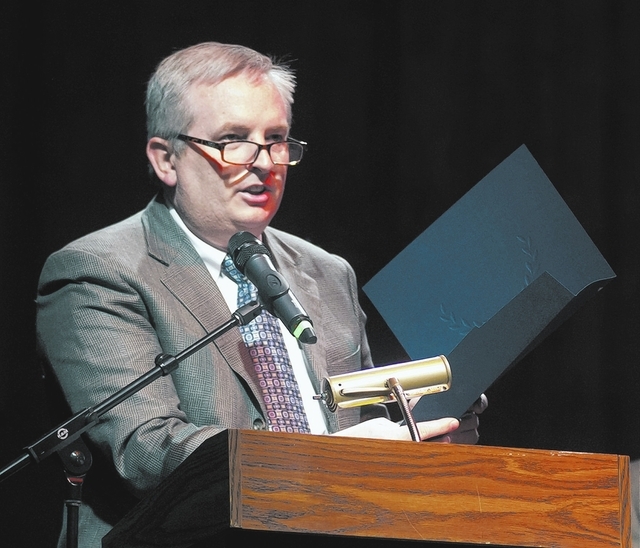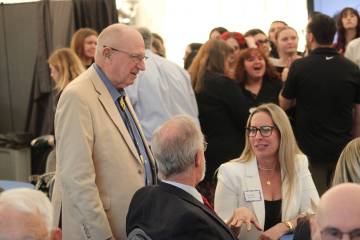Ethics commission to review Walker’s voting record
City Councilman Cam Walker has been called before the Nevada Ethics Commission to address allegations that he broke state law by voting on agenda items in which he had a financial interest.
In April the eight-member commission will examine Walker’s council voting record dating from 2011, including a June 26, 2012, meeting where he voted on a contractual amendment for the billion-dollar Korea Midland Power Co. solar facility to be built on leased city property.
At the time Walker was director of business development for McCarthy Building Cos., one of Korea Midland’s proposed contractors.
Walker voted on the item after receiving advice from City Attorney Dave Olsen that it would not be improper as long as he disclosed his relationship with McCarthy. Although Walker worked for the potential bidder, he said he had no financial interest in the project.
“There wasn’t, like, a benefit to me,” Walker said.
He mentioned he had an employee stock ownership plan where he owned less than .001 percent of the $3.5 billion company.
Additionally, Walker said McCarthy’s solar division was based in Phoenix, but the company might have used workers from its Las Vegas office. He also said the project hasn’t been built and no company has been awarded a construction contract.
“The most important thing is there was no project (when I voted),” Walker said. “There still is no project.”
The Ethics Commission published a Feb. 20 determination claiming its investigatory panel was divided on whether the case should be forwarded to the full commission. The two-person panel reviews evidence collected by commission staff after a complaint is received.
“If there’s enough evidence to support a reasonable belief that a violation might have occurred, they vote to move it forward to full hearing,” said Caren Cafferata-Jenkins, commission executive director.
However, under state law, in circumstances where panelists do not agree, the case goes to the full commission.
Walker’s hearing will be April 16 and 17 at the Sawyer State Building in Las Vegas.
In April, former Police Chief Thomas Finn sought an opinion from the commission on Walker.
Finn alleged that Walker violated five sections of the state’s ethics in government law. One allegation was that Walker used his council position to grant unwarranted privileges for himself or a business entity in which he had a financial interest.
However, the panel only found enough evidence to forward one of Finn’s allegations, that Walker violated the disclosure and abstention requirements.
Walker called Finn’s allegations “fallacious mudslinging” and said he was pleased with the investigatory panel’s findings.
“I’m very happy with the direction this is going and one of the two (panel members) said he or she didn’t think it was a violation,” Walker said.
Finn did not return a request for comment by deadline.
But during the investigation, commission staff discovered additional instances of Walker failing to make potentially required disclosures dating from 2011, Cafferata-Jenkins said. The panel, however, chose to leave the additional allegations for the full commission to consider because of questions about how a two-year statute of limitations applies.
Cafferata-Jenkins said it is important for these types of ethical questions to be answered.
“We should clarify it so not only can Walker can go forward in the future and know exactly what is expected of him, but there have got to be other people in his same position,” she said.
Before receiving Olsen’s advice, Walker said he had planned to abstain from the vote.
“I should have continued to follow my gut and not listened to counsel in that case, but I did, and I don’t feel like I did anything wrong,” Walker said. “And I look forward to my hearing with the ethics board.”















